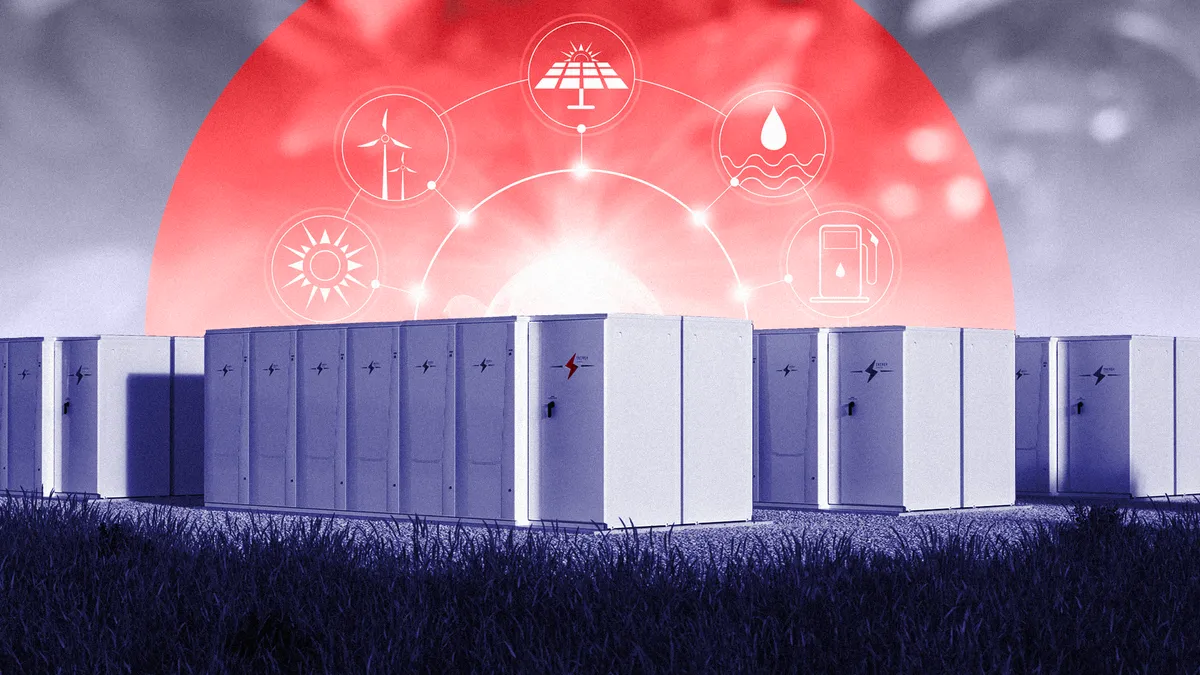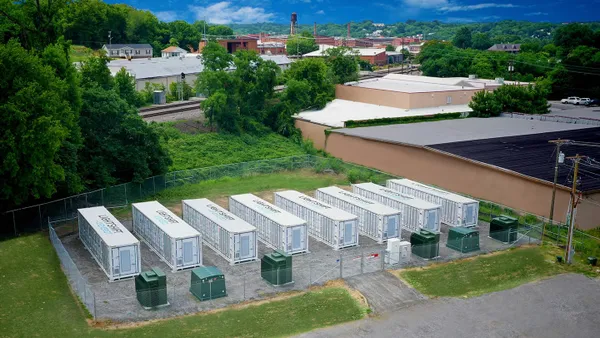Dive Brief:
- Georgia Power will collaborate with Massachusetts-based startup Form Energy to deploy an energy storage project of up to 15 MW/1500 MWh using a novel iron-air-exchange flow battery technology, the companies said Wednesday.
- Form, which is backed by the Bill Gates-led investment fund Breakthrough Energy Ventures, has a battery design it says can offer up to 100 hours of electricity storage at a price of less than $20/kWh. The partnership with Georgia Power marks the company's largest announced deployment.
- In its 2022 Integrated Resource Plan (IRP) released in January, Georgia Power requested approval to own and operate 1,000 MW of energy storage by 2030 with a focus on long-duration storage. Georgia Power parent company Southern Company is an investor in Form Energy through the Energy Impact Partners firm and highlighted the company in its IRP.
Dive Insight:
Form Energy made waves with its announcement last summer of a long-duration battery technology relying on iron pellets that could be made at a fraction of the cost of lithium-ion batteries. The pellets rust when exposed to oxygen while the battery is discharging, then revert back to iron when oxygen is removed and the battery is charging. The low cost of the iron components and the potential for a widespread long-duration battery deployment attracted $200 million in fundraising last summer and a flurry of interest.
Form Energy had previously announced a pilot project with Minnesota electric cooperative Great River Energy, but the Georgia Power announcement marks the first partnership with an investor-owned utility and will be "an order of magnitude larger," said Form Energy CEO and co-founder Mateo Jaramillo.
"This utility is very unique and is probably not the first one you would guess would make this kind of announcement," Jaramillo said. "That shows how far we've come. We've had collaborative discussions about what the future of the grid can look like."
Georgia Power's three-year IRP detailed plans to retire its coal capacity by 2028 and add 2,300 MW of solar generation over the next three years. In all, the utility said it would add up to 6,000 MW of renewable generation by 2035, coupled with a massive increase in energy storage. The company has begun work on the 65 MW/260 MWh Mossy Branch Battery facility with an aim to achieve commercial operation in the fall of 2023 and has also done site development tests to install 265 MW/530 MWh of lithium-ion battery capacity at the McGrau Ford substation north of Atlanta.
However, the IRP also notes a "potential need for weekly, monthly, or even seasonal storage resources," which can weather the day-to-day variability of solar generation and ensure reliability longer than lithium-ion batteries. New technologies, the utility wrote, "could provide an economic and reliable avenue to reduce reliance on fossil fuel-based generating resources," although it added that emerging storage solutions require additional testing and demonstration.
"At Georgia Power, we know that we must make smart investments and embrace new technologies now to continue to prepare for our state's future energy landscape," said Georgia Power Chairman, President and CEO Chris Womack in a statement. "As we continue to grow our renewable portfolio, we believe that energy storage solutions will play an important role in ensuring our customers continue to have a reliable and resilient electric grid for decades to come."
Jaramillo said Southern Company's long history with Form Energy helped advance the conversation, especially given Form's lack of public demonstration projects. Form Energy has also debuted an analytics platform called Formware that can demonstrate the role of long-duration storage to existing utility assets. Jaramillo said that other partnership announcements will be made later this year, but the company is also focused now on ramping up manufacturing.
"This is an indicator of the progress we're making in the market … and how fast the market is moving for multi-day storage," he said.














